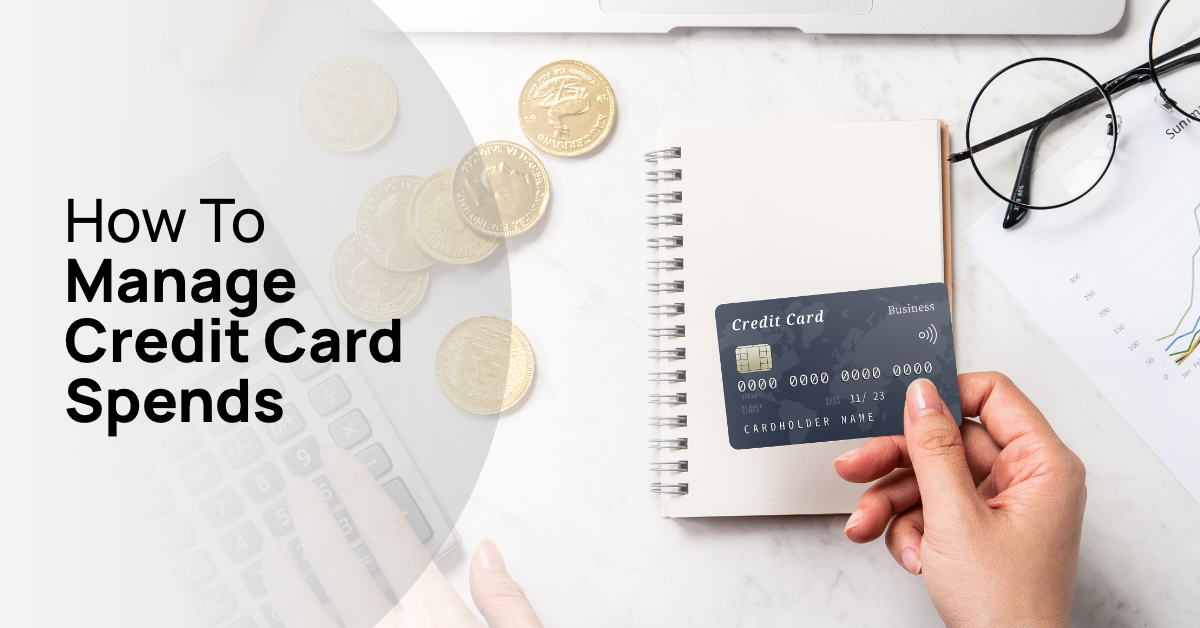The Psychology of Credit Card Spending and Overspending
By OneCard | April 29, 2024

For most who own a credit card, it is like having a genie in your pocket, with all your shopping dreams coming true with a simple swipe or tap. However, with great power comes great responsibility. The ease of buying anything and paying later may make you spend more than you planned.
Since the money is not immediately debited from your account, you sometimes give yourself the leeway to go overboard with your budget. And you don’t realize this until you are served with the credit card statement at the end of the month. Soon after, a chunk of your income is spent on this hefty credit card bill, limiting your ability to spend freely in the coming month and leading to increased credit card spending. How do you escape this vicious cycle?
Before we look at how to avoid overspending, let’s look at why we do it in the first place:
Table of contents:
Why Do We Overspend?
1. Credit Cards Often Become A Gateway To Impulse Buying
Did you know that hitting that “confirm order” button releases dopamine in your brain? Unfortunately, from there, it is a slippery slope. Soon, shopping will become a means of instant gratification, and you will make your credit card a gateway for your unplanned purchases.
2. Sudden Lifestyle Changes Can Prompt Overspending
Are you getting a raise anytime soon or moving to a new city? Have you made new friends and want to keep up with social appearances? As your life changes, so does your shopping behaviour, prompting more purchases and extra credit card spending.
3. Getting Habituated With Credit Card Debt
It becomes easy to overspend when you know you won’t have to pay for it until the next month. This habit normalises overspending and affects your credit score adversely. A side effect is difficulty accumulating savings and relying more on credit card spending for more than essentials and emergencies.
Here’s How To Avoid Overspending
“Why don’t you just stop overspending?!” sounds like a simple solution, but there’s more to the story. To avoid overspending, one requires self-awareness, honesty, proactiveness, and discipline. Here are a few strategies to keep in mind that can help limit your credit card spending:
Embrace The ‘72-Hour Rule’
Between the impulse to buy and making the purchase, there exists a small window where you make the decision. If you want to curb impulsive buying, increase that window to as long as possible, at least 72 hours. This means stepping away from the item for 72 hours. If the urge to buy still exists, only then can you make the purchase. You will be surprised to see how many items you thought you needed versus the ones you do.
Create a ‘Needs Vs Wants’ List
Breaking down and categorizing your list of expenses into ‘Needs,’ ‘Wants,’ and ‘Savings’ helps put things into perspective. This distinction enables you to focus on fulfilling needs such as rent and groceries, etc., before indulging in wants like the latest iPhone or shoes. You can decide to invest a specific percentage of your salary every month, depending on your living expenses.
‘Consciously’ Track Your Spending
By seeing where your money goes, you can spot areas where you might be overspending. Tracking expenses helps you see patterns and adjust your monthly spending as needed.
Set a Lower Credit Limit
Lowering your credit limit is a wise move to counter the illusion that your credit card has unlimited spending power. This adjustment promotes informed shopping and budgeting decisions, fosters better financial management, and encourages saving habits.
Also Read: Should You Increase Your Credit Card Limit
Breaking free from the cycle of overspending is a difficult but attainable task. It calls for scrutinizing your spending habits, recognising overspending triggers, and being more mindful while shopping. Embracing this journey will help you make wiser shopping decisions, and soon, your credit card will begin to empower you rather than weigh you down.
**Disclaimer: The information provided in this webpage does not, and is not intended to, constitute any kind of advice; instead, all the information available here is for general informational purposes only. FPL Technologies Private Limited and the author shall not be responsible for any direct/indirect/damages/loss incurred by the reader for making any decision based on the contents and information. Please consult your advisor before making any decision.

How Credit Card Validators Help You Prevent Financial Frauds


Sharing is caring 😉